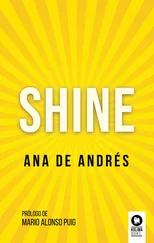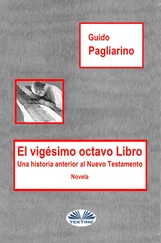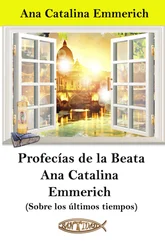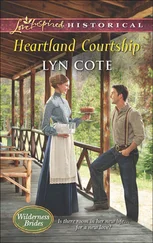Downtown Elmira is on the west bank flatlands, directly across from Round Hill and linked to it by a short bridge. Main Street, with its graceful nineteenth-century brick buildings that still house the inept county bureaucracy, ran decorously along the river for about half a mile before it dissolved into a decrepit shopping center, two white-trash trailer parks and several car dumps masquerading as garages.
Beyond the grisly Royal Tire and Brake, where car, dog, and perhaps human carcasses intermingled, began a swampy area that stretched all the way to the county line. It was there that a local man, after bribing the proper authorities, slapped in an illegal sewer line draining into the river, built a two-way road above it, and began selling lots on either side. He called it Shangri-La.
For fifteen years there were no takers. Then one day, some Negroes who worked at Elmira’s poultry factory were spotted building a small cinder-block house in the lot nearest the main road (the degenerate continuation of Elmira’s Main Street). Soon, others followed, working nights and weekends to build their little grey houses. By the time I, the first spic baby, was born, all the lots on either side of the original Shangri-La road were built, down to the cheapest ones by the river edge, where we lived, and which periodically flooded. Afterward, five more roads sprouted parallel to the original one, with lots snapped up by the Mexicans who replaced the Negroes in Elmira County’s remaining poultry factory. But that happened long after I left.
When I was little, there were only two spic families in Shangri-La, Rafael Cohen’s and ours. Neither was Mexican nor worked with poultry. Rafael’s father was a janitor in our grade school until he retired. He never learned English. Not a word in forty years, beyond gumornin, guafernún, zenquiu, gubái, no spic inglich . According to my mother, the good and the bad thing about Ezequiel was that he was content with his fate. My mother and Ezequiel had grown up as next-door neighbors in La Esperanza, a dusty-red sugar mill town in the old Cuban province of Santa Clara, and gone to grade school together. Ezequiel had ended up marrying my mother’s cousin, Genoveva, a few months after my parents’ own wedding. The two couples had left La Esperanza together in 1958, looking for jobs up North. Ezequiel had left reluctantly. My mother’s mother, recently widowed, soon followed them. Somehow (I never got a satisfactory answer why) they had ended up in Elmira’s Shangri-La, where Rafael and I were born in 1964, two days apart: he on the twenty-fifth of December, I on the twenty-third.
Now our four parents were buried side by side in Shangri-La’s small cemetery. They braved the Great Hunger, refusing evacuation to protect their homes, and survived on potatoes, wild roots, and questionable fish for seven years. Then, they all died of natural causes statistically much sooner than the national median in both their native and their adopted countries: phlebitis (Ezequiel), lung cancer (Genoveva), heart attack (my father), diabetes and renal failure (my mother). Genoveva and my father would have died anywhere anyway, but Ezequiel and my mother were killed by the Elmira General Hospital, which sent the first one home to die unattended and grossly mismanaged the second’s treatment. If only I could graft McCabe to Elmira, so Elmira dies with her: two vultures with one stone. Now there are only two little founding spics left: Rafael and I. He is in besieged Constantinople today on a surprise national security mission, the radio says. And I am looking at Shangri-La from the top of Round Hill, a brownish spot on the river bend, barely visible in the early morning mist. I should weep: it’s the appropriate thing to do. I try but I can’t.
McCabe did not come down for dinner on the evening of September 14. The precise date is carved in my ears, where the braying from Saint Glykeria, Martyr reverberated all day—it was the Feast of the Exaltation of the Cross, and one hundred frenzied Kyrie Eleisons were sung every time the bearded one lifted the cross. When cotton balls failed, I plugged my ears with melted wax, burning my fingertips and the outer rim of the ear canal, and the thunderous braying became a mere muffled sawmill screech. Deprived of hearing and, oddly, olfaction for the day, I suspected something was afoot only when I saw Petrona leaving a tray by McCabe’s door. The tray held a silver bell cover, a bottle of Perrier-Jouët, and a vase with a yellow rose freshly cut from the garden. The dinner table was set only for me.
Petrona was pureblood Aztec, thus inscrutable. Today there was an additional shroud drawn over her face. She had done three things she was absolutely forbidden to do, which would have allowed me to rip her heart from her chest had I been one of her ancestors: gone up the stairs to McCabe’s door, cut a rose (had she used a kitchen knife, or had she broken into my gardening shed?), and brought a champagne bottle up from the cellar (had she picked the lock or stolen my key?). Worse, she had not consulted me, the housekeeper. I, and only I, was Petrona’s interlocutor in the household. She was allowed to speak only to me. Never to McCabe. I had made this threateningly clear to Petrona from the moment I hired her. Was she now taking her instructions directly from McCabe? I put on my own zombie mask, so that my Popocatepetlian rage would not erupt over Petrona’s head. It was a delicate situation. If Petrona realized that I had noticed, I would be forced to question her. This would be a sign of weakness, proof that I did not know what was going on. Would Petrona dare do all of this without McCabe’s approval? Doubtful. But if McCabe had broken our contract and ordered around Petrona behind my back, it was McCabe I had to dress down, so that she, not I, could set matters straight with Petrona the next day. After which, I would have a stern talk with Petrona and reluctantly forgive her, just this time, because Señorita Maké had been confused for a moment about the lines of domestic command.
I chewed on my odorless tofu stew while rehearsing these disciplinary scenarios. The back door fluttered, signaling Petrona’s exit. Lord, have mercy, I said, unplugging my ears. There was absolute silence. I stayed in the darkening dining room for a long time, listening, but not a sound came out of McCabe’s room. When I glanced up the stairs, the tray was gone.
The cellar key was in its place, in the top drawer of the Judge’s desk, which I kept locked at all times. The brass key that opened the drawer was in my pocket, on a key ring that included the house and gardening-shed keys. I checked the drawer lock with a flashlight and the tiny magnifying glass that I used when tightening the screws on my reading glasses. The drawer did not seem to have been forced, but a professional would know how to pick a lock without leaving any trace. I could not imagine Petrona having that skill. (But, for all I knew, she could have been Raffles, the silk-handed thief. My lack of imagination about her was purely racial.) The gardening shed appeared equally free from human disturbance, although there were animal footprints on the dusty floor, something small and clawed, a field mouse or perhaps a weasel. The only window hung unevenly from rusty hinges, closed but not locked. Animals are stronger and smarter than we think, even mice. They could have broken in and left without a trace. I nailed the window shut. It was beginning to drizzle when I shone the flashlight on the yellow rosebush. There were twenty-seven roses, including three unopened buds. I memorized their position: it was too wet to make a diagram. From now on, I’d be able to tell if one was missing. As it turned out, I never could. The yellow roses continued to appear on McCabe’s daily tray, and my nightly rose count yielded numbers so disparate that they signified nothing: fifty-three roses and seven buds on the second night, thirteen roses and seventeen buds on the third, and so on. But that first night under the drizzle, I went back in with a feeling of accomplishment and quickly fell asleep.
Читать дальше












